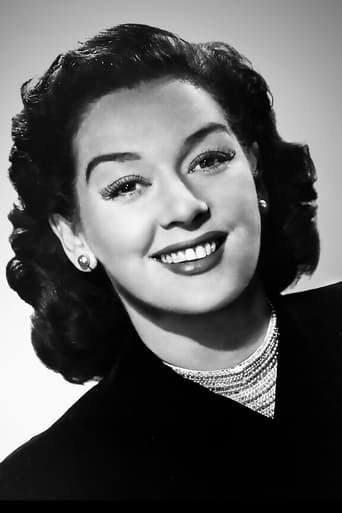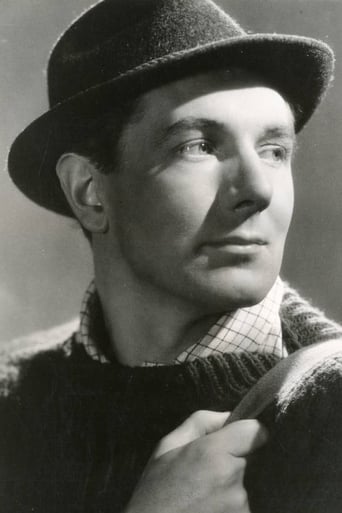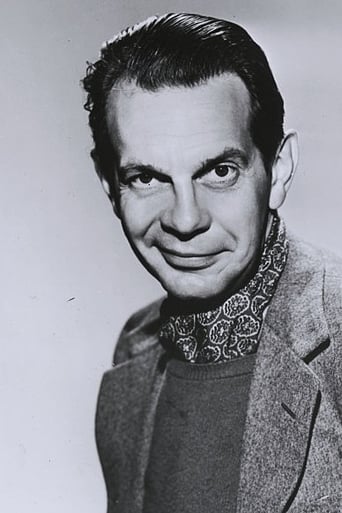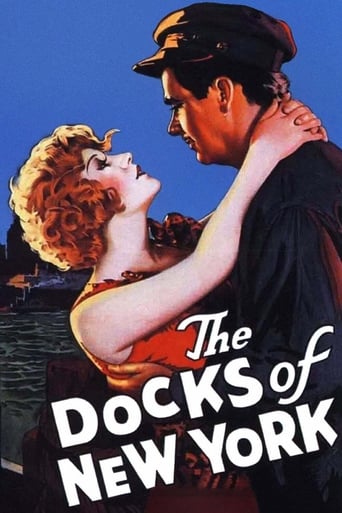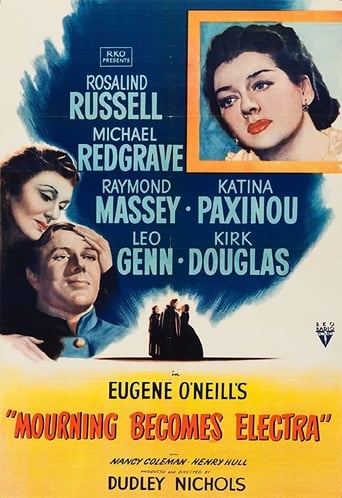
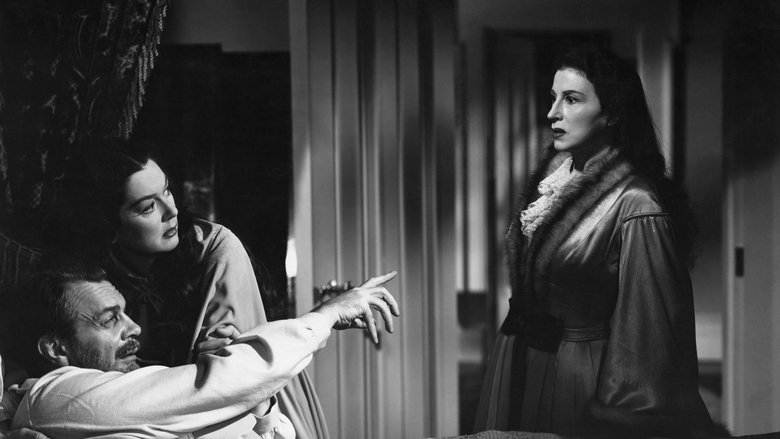
Mourning Becomes Electra (1947)
Near the end of the Civil War, the proud residents of Mannon Manor await the return of shipping tycoon Ezra Mannon and son Orin. Meanwhile Ezra’s conniving wife Christine and daughter Lavinia vie for the love of a handsome captain with a dark secret while well-meaning neighbor Peter sets his sights on Lavinia.
Watch Trailer
Cast
Similar titles

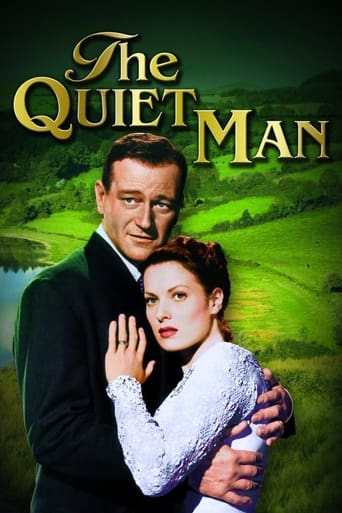
Reviews
Excellent, Without a doubt!!
Don't listen to the negative reviews
A Disappointing Continuation
This is a coming of age storyline that you've seen in one form or another for decades. It takes a truly unique voice to make yet another one worth watching.
A stylish show with great performances of the best actors is not enough to varnish over the shortcomings of this mammoth mummy version of a great story. If you know the Aeschylus original, you just have to compare him with O'Neill and find O'Neill dwarfed to almost nothing.The Aeschylus play dramatizes a true story of flesh and blood and towering passion, Agamemnon is the lord of the world and returns home after ten years of absence in war with even a prisoner for a mistress, and his wife and queen Clytamnestra axes him to death in his bath out of long built up fury. She murders the mistress too. Her children are Electra and Orestes, and there is a younger daughter as well. Orestes has a close childhood friend Pylades, who helps Orestes and Electra to avenge their father. Orestes kills both his mother and his mother's lover, and that's the story.There is no Pylades in the O'Neill version and no younger sister. There is no chorus, which is vital in the Greek play for reflecting universal sentiment, and no poetry. Pylades is replaced by Kirk Douglas, who loves Electra but ultimately abandons her to her mourning.The axing of Agamemnon is by O'Neill replaced by Mrs Mannon stealing poison into her husband's medicine, who suffers from heart failure.Raymond Massey is impressing as usual as the general, Rosalind Russell gives her life's performance as Electra finally sealing herself up in mourning when both her mother and brother have shot themselves, she is actually innocent to any crime in the family while she accepts all the blame all the same, Michael Redgrave makes another of his many virtuoso performances of eccentricity and madness, Kirk Douglas is himself, Leo Genn is the murdered lover but don't get much to do or say before he is murdered, while perhaps the most impressing is Katina Paxinou as the mother, the only convincing character in this film, for her beauty and very expressive acting, more evident in her vibrations than in her talk.It's an interesting film, of course, but it's like a stranded whale, hopelessly dead and morbid and void of the original Greek zest, which is preserved and delivered only by Katina Paxinou.In brief, Aeschylus is to be preferred to this banal americanization of a great story reduced to petty humdrum provincialism. Not even the music constantly repeating itself manages to bring this show to any inspiring level. It's worth seeing though for the splendid dresses of the 1860s. The director did not make another film.
... he was just the lit match that set the kindling afire. This is the most messed up family ever. Christine Mannon has always hated her husband Ezra Mannon, a general in the Union army at the time of the Civil War. Outside of casualties the Mannons have nothing to fear from the war since they are safely in New England, far from the actual fighting. But they actually have their own civil war brewing. On top of Christine hating her husband since she married him, begging the question WHY did she marry him, Christine has a much younger lover, sea captain Adam Brant (Leo Genn). Apparently the daughter in the family, Lavinia (Rosalind Russell) fancied Brant at one time herself, so she could hate her mom because she is betraying her father, or she could just be jealous that a woman in late middle age beat her out of a beau.Brant began just toying with Christine because he wanted revenge for something the Mannons did to his mother years ago, although the toying turned to love. Plus it turns out Brant is a Mannon himself, but it is a part of himself that he despises. But Christine knows about the shunned relative angle and is still not dissuaded.Then dad and son return from war, and it turns out that there is something pretty weird about the father/daughter and the mother/son love dynamic going on here. It doesn't look paternal and it does not look platonic. Christine switches Adam's heart pills with poison and kills him so she can be free to be with Brant. However, Lavinia discovers her scheme and the poison pills. Rather than turn her mother over to the authorities for murder, she convinces her brother (Michael Redgrave as reluctant war hero and mama's boy Orin) to mete out their own brand of personal justice rather than send mom to the gallows. The problem is, Lavinia is more like her mother than she would ever admit, Orin is a very unstable partner in her scheme, and Christine does not think that Lavinia's idea of justice is all that it is cracked up to be.Add in Lavinia's rather naïve yet devoted suitor with high moral standards, played by a - believe it or not - sixth billed Kirk Douglas, and you have a recipe for disaster.If this sounds like a Greek tragedy, actually it is. But you know what, I was glued to to the screen taking it all in. I felt like a voyeur invading this family's most personal crazy secrets. It was just like when the brother and sister were on the boat looking down, like voyeurs, into the galley and seeing their mother in the arms of her adulterous lover. The movie grabs your attention and keeps it for 2 1/2 hours.Highly recommended especially for Michael Redgrave and Rosalind Russell who, though she was just shy of 40, did not look too old for the part. Michael Redgrave takes a wild ride of emotions and has you believing every one of them. Oh, and Kirk, run! Run far away from these people! No scrape that Burt Lancaster or the Duke ever got you into was as dangerous as these Mannons!
I would not be particularly surprised if most people are indifferent to this film during the first 20 or 30 minutes. I felt it was slow and VERY stilted. However, as the movie progresses, it gets better and better--so stick with this one."Mourning Becomes Electra" is based on Eugene O'Neill's play--which itself was based on Aeschylus' story of Electra. However, as it was first produced in the early 1930s, it was STRONGLY influenced by Freudian psychology and the incestuous nature of the interactions were greatly enhanced. Because the theme of incest is so very strong, I am actually rather surprised they were able to make this in 1947, though I heard they toned it down a bit to get this past the censors. As it is, there still is a very noticeable undercurrent of incest throughout the film.The film begins just as the Civil War is ending. Lavinia (Rosalind Russell) is spying on a woman (Katina Paxinou)--a woman who appears to have a lover--a ship's Captain. Only a bit later do you learn that the woman with the illicit affair is Lavinia's mother! And, to make things even more sordid, this man (Leo Genn) was also courting Lavinia!! This is weird--and even weirder when Lavinia learns the Captain is her cousin! Weird incestuous incident number one.When the husband (Raymond Massey) returns home from war, he tries to patch up the estranged relationship with his wife--though you can see that Lavinia has a rather unhealthy love for him (weird incestuous incident number two). She, however, is cold and plans on murdering him so she can have her little sailor boy. Lavinia learns of the affair and finds the poison her mother used. When she proves to her brother (Michael Redgrave) that their mother is a murderer, Orin becomes much more upset that his mother would leave him than the fact that she killed his father! So, he soon murders the lover so he can have her for himself (incestuous incident number three).Unfortunately, when Orin and Lavinia tell their mother what has occurred, instead of running to her son to love her, she commits suicide. Soon, Lavinia has assumed her role and Orin, his father's role. They both go to visit a tropical isle--the same one their mother had wanted to go with her lover and which Orin had tried to get his mother to go with him!! Heck, Orin even grows a beard just like his father! And, like their parents, Lavinia and Orin fall into a twisted relationship--as if they were married and deeply in hate with each other (incestuous...oh, never mind). More crazy stuff follows....There's more to the film, but suffice to say that if Sigmund Freud and his disciples saw this film, they probably had a ball! Sick, twisted and even more perverse than the original Greek tale--this is an amazingly interesting plot. HOWEVER, and I hate to point this out, the movie/play has a wonderful story but the style is something that doesn't play as well today. I know O'Neill is considered a super-mega-genius, but the dialog (especially early in the film) is VERY stilted and the play could use a more paraphrased retelling--getting rid of all the talky moments and tightening it up a bit. Like Shakespeare, O'Neill was terrific but in need to keeping up with the times (I am sure some reading this are aghast at this suggestion--particularly about Shakespeare). I particularly disliked O'Neill's device where you hear what the characters were thinking (which was also used in his play/film "Strange Interlude").By the way, this would be a wonderful film to watch for a psychology class--particularly one on analytic theory (i.e., Freudian and Neo-Freudian psychology). Picking apart all the covert and overt examples of incest and their relationship to their Electra and Oedipal Complexes is pretty interesting stuff! Finally, if you are a nut about film trivia, watch the first scene as the story is being set up by the folks walking through Lavinia's mansion. One of the women is Blossom Rock (birth name Mary Blake)--the same woman who later appeared as Grandmama on "The Addams Family" and who was Jeanette MacDonald's older sister. And the gardener (Henry Hull), he was one of the movie world's first werewolves as he starred in "The Werewolf of London"
Eugene O'Neil or not, this 1947 film is pure junk.Rosalind Russell was favored to win the Oscar for playing the horrid Lavinia. The picture was so lousy, that's what did her in.A story of love and continuous death, people literally die off like flies in this one, is depressing. The cinematography may also be described this way.Former Oscar winner, Katina Paxinou overacts. She literally screams her part. Michael Redgrave, who was also Oscar nominated here, is really vacuous here.Rosalind Russell was a superior actress who was given an inferior script. Had I been her, I would have headed to the exits right after this film was made.A pure a-one stinker.
